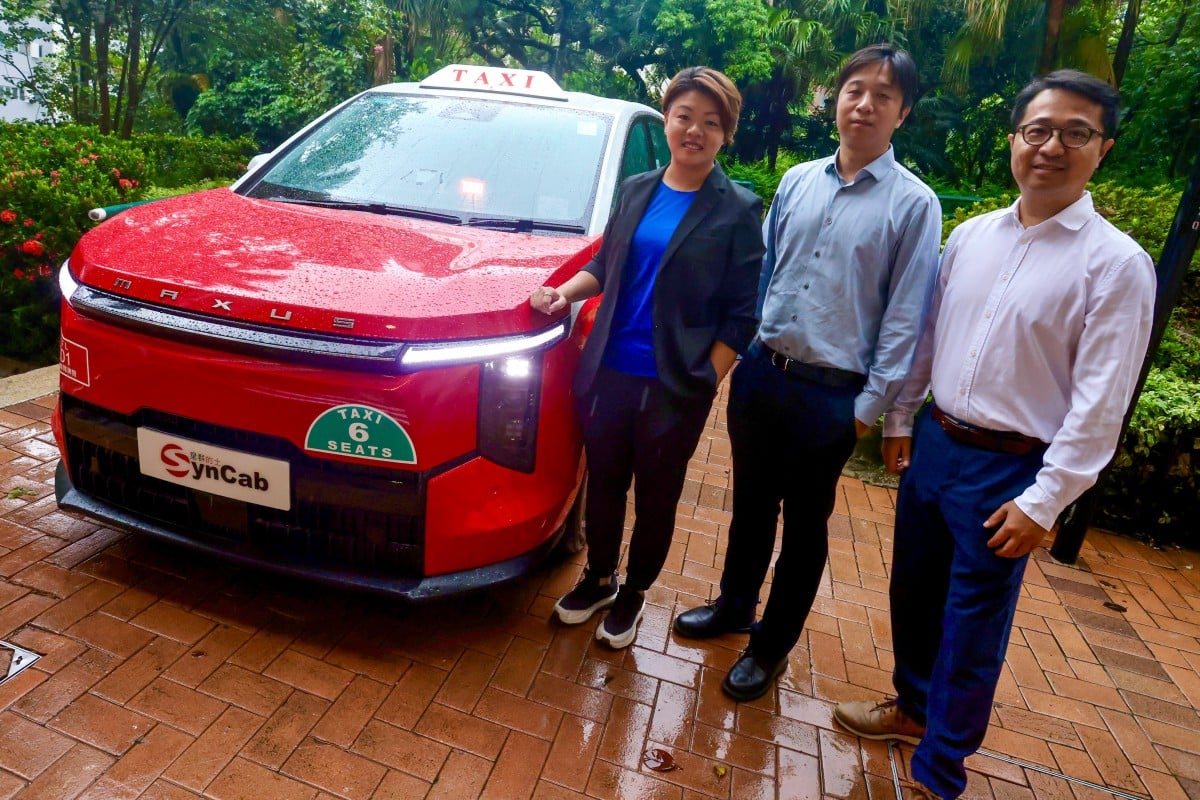Hong Kong taxi fleet, HKU roll out city’s first AI-powered dispatch system
South China Morning Post 2025.08.04

A taxi fleet has partnered with the University of Hong Kong for the launch of the city’s first AI-powered cab dispatch system, which the operator has said improves efficiency, service quality and order acceptance rates.
The “Smart Dispatch Decision System” processes large volumes of real-time data such as road traffic status, weather and battery levels of electric cabs to assign orders, according to taxi fleet SynCab and the Smart Mobility Lab of the university’s faculty of engineering.
Sonia Cheng Man-yee, founder and executive director of SynCab, said on Monday that drivers who opted to take bookings from the artificial intelligence-powered dispatch system would be given orders without an option to reject them, which could help shorten the match time.
“This could help our vehicles to be more efficient, as well as help enhance service quality and order acceptance rates,” she said. “Drivers also have to learn to trust the system that the orders given to them will be the best.”
She said the system had a soft launch in January and before a full roll-out on July 14 as it gathered more data, highlighting that orders placed and taken last month both doubled those of June.
SynCab operates 160 vehicles, all of which are equipped with the system. Cheng added that her fleet would have up to 425 taxis using the system in the future, but did not reveal a timeline.
She said the system worked best for immediate orders, while SynCab also broadcasted advance bookings to drivers, giving them the option to decide whether to accept the request.
Taxis with different fleets could also be hailed on the streets, resulting in the system being unaware of whether the cab was occupied. Cheng said she had reminded drivers to turn off the system when they took passengers who physically flagged them.
She said that in the future, smart meters would be able to identify if the taxi had picked up a passenger and restrict bookings to that driver during the journey.
Professor Ke Jintao from the university’s department of civil engineering highlighted that the system set out to devise the most appropriate order based on real-time data, in particular to address drivers’ concerns over battery life.
“The way we work out remaining power is based on artificial intelligence. We’d take a lot of data points, such as the weather, traffic, number of drivers and passengers, and put them in a deep learning model to project the accurate level of battery,” Ke said.
Five premium fleets – Joie, SynCab, Amigo, Big Boss and Big Bee – were operating locally as of last month, part of an initiative authorities hope will “bring a new look” to an industry hit with complaints of poor service and refusal to adopt non-cash payments.
In a recent test by the Post, four of the fleets failed to accept hire requests within 30 minutes in the city centre. SynCab was the first to confirm a ride after an 11-minute wait, following the cancellation of the first order due to no available drivers. Its taxi arrived 10 minutes later.
The other four failed to respond or repeatedly cancelled orders during the 30-minute period, contrasting sharply with a separate test to get a traditional taxi or Uber, with both requiring a wait of less than one minute and offering cheaper fares than SynCab.
SynCab also said it would soon launch a new app version that would allow users to better track payment status.
